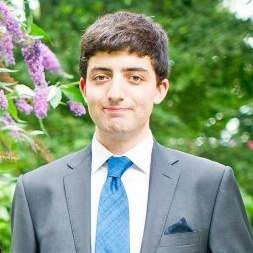War and Peace is no small undertaking for any company to perform, but staging this sprawling giant pales in comparison to its composition in Prokofiev's latter years. Amid the turmoil of the early 1940s, it took the composer most of his final decade to distill Tolstoy's epic account of early 19th-century Russian life into a single evening's entertainment. David Pountney's new production for Welsh National Opera makes the strongest possible case for this monster of the repertoire.
The opera demands a vast cast, a huge chorus and virtuosic orchestral skill. It also wrestles with a problematic structure which has variously been pruned, spliced and transplanted into a great number of different forms. Tonight saw the debut of Rita McAllister's new English translation. Pountney's own notes detail his desire to strip back some of the Communist Party-imposed bombast which clags the opera, and draws parallels with “the current epidemic of intolerant, dogmatic nationalism”. The result still has a generous sprinkling of unabashedly heroic choruses, but is also a convincingly well-proportioned package which captures a good deal of the novel's intricacies.
The opera is bookended by two such choruses, the first flashing into life in a tumult of noise timed perfectly with the lights going down, with the author seen working at his desk. From this explosive outset, the WNO Chorus were as superb as ever in a performance of ferocious intensity. Tomáš Hanus did a fine job in balancing their huge sound with orchestra and soloists, and he also maintained a sense of forward momentum even in some of the more arduous passages of the “Peace” act.
The enormous cast takes some of its lesser members from the chorus and some shrewd doublings. Of the chief protagonists, Jonathan McGovern (Andrei), Lauren Michelle (Natasha) and Mark Le Brocq (Pierre) were all excellent, but it was the latter's thoughtfully bookish personality which was the most engaging. His role is small in the first half, but his earnest rage at Anatole showed off his richly coloured voice across a very wide range, and his self-discovery in Act 2 was very convincingly pulled off. McGovern sang the young prince with beautiful softness, and his deathbed scene with Natasha, cleverly viewed from vertically above, was some of the most memorable theatre I have seen.
Though reducing such an all-encompassing novel to two 90-minute acts inevitably sacrifices a large amount of detail, that which was retained was vividly coloured. Characterisation of the other key roles was uncommonly rich in detail, thanks largely to the very high standards of acting on display and good deal of laugh-out-loud humour. Both Hélène (Jurgita Adamonytė) and Anatole (Adrian Dwyer) were portrayed in high spirits, but both also sang with complete assurance. The more senior figures of Kutuzov and Prince Bolkonsky (Simon Bailey and Jonathan May) both came with a degree of curmudgeonly bluster, while James Platt's Count Rostov was more benign in an authoritatively rich voice.
Pountney's traditional staging is set in front of a large, sweeping staircase-like structure with projections displayed above it, making for an impressive sense of depth. The projections vary from abstract colours (flying chandeliers at the ball or swirling reds at Hélène's salon) to disarmingly graphic battle footage from Sergei Bondarchuk's 1966 film of Tolstoy's novel. These are used with just the right mix of impact and subtlety, pausing here or there to draw attention to a key exchange on stage. A building exterior with large windows gives us an alternative perspective into the most intimate scenes, such as Andrei's last illness.
WNO's orchestra provided many moments of magic. There was some astoundingly virtuosic trumpet playing, with not a note put wrong, and the more lusciously romantic first act writing saw some very attractive string richness. The percussive machinations of the “War” act, complete with in-time explosions, were brutally executed.
War and Peace remains troublesome in its wild ambitions, both in terms of thematic outlook and practical scale, but WNO here make a strong case for Prokofiev's opera being heard more widely.




